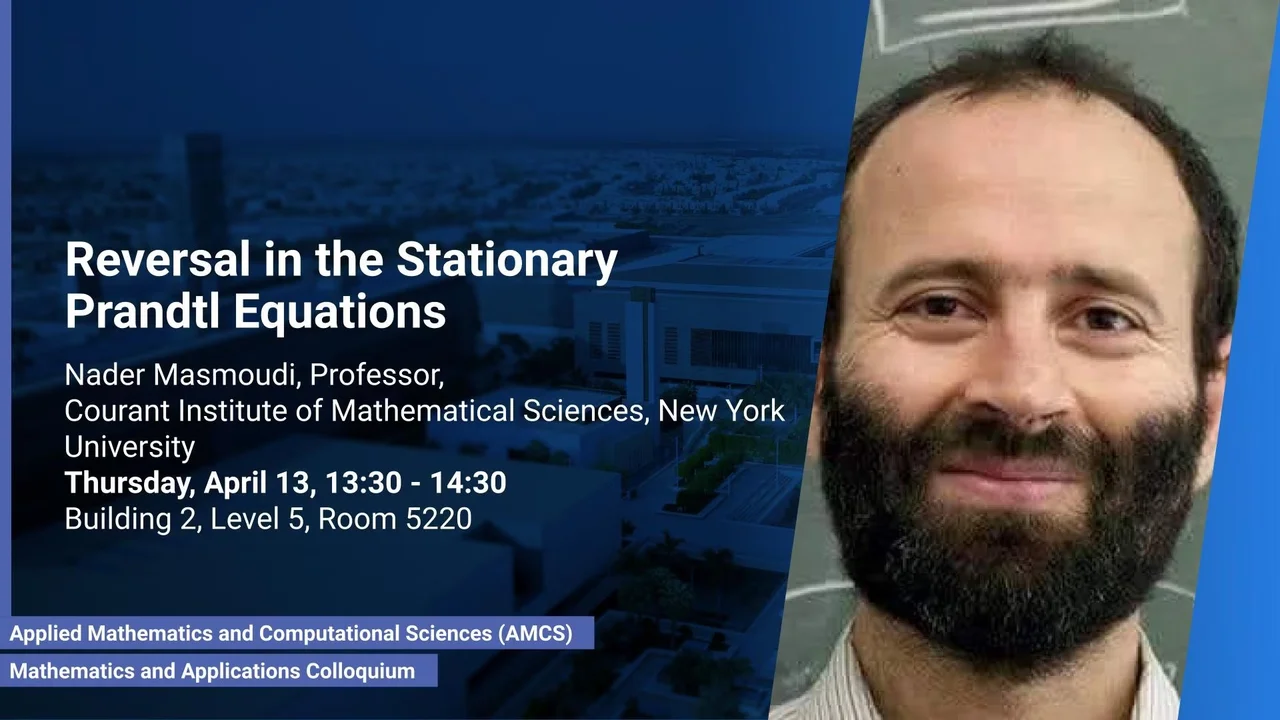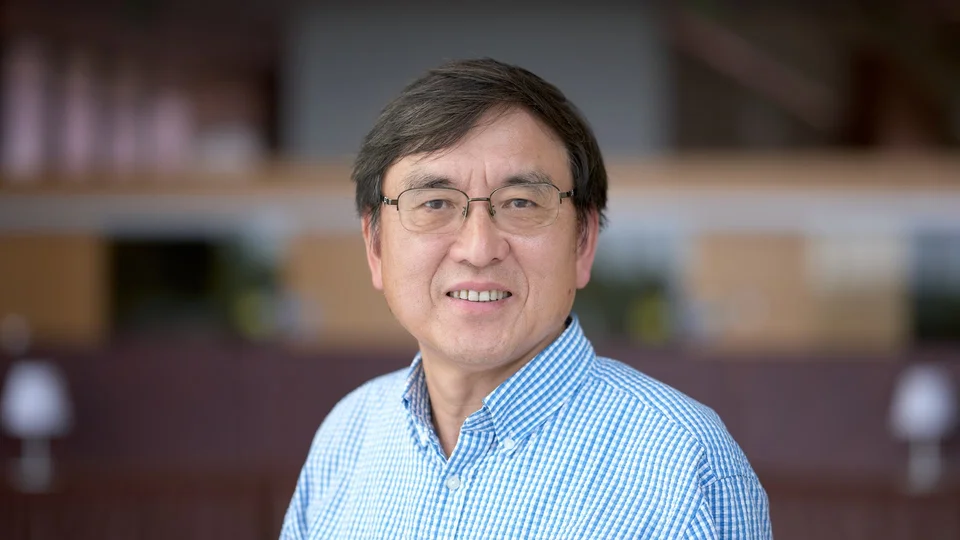
Reversal in the Stationary Prandtl Equations
- Prof. Nader Masmoudi
B2 L5 R5220
We investigate reversal and recirculation for the stationary Prandtl equations. Reversal describes the solution after the Goldstein singularity, and is characterized by regions in which $u > 0$ and $u 0$. The classical point of view of regarding the Prandtl equations as an evolution equation in $x$ completely breaks down since $u$ changes sign. Instead, we view the problem as a quasilinear, mixed-type, free-boundary problem. Joint work with Sameer Iyer.
Overview
Abstract
We investigate reversal and recirculation for the stationary Prandtl equations. Reversal describes the solution after the Goldstein singularity, and is characterized by regions in which $u > 0$ and $u < 0$. The classical point of view of regarding the Prandtl equations as an evolution equation in $x$ completely breaks down since $u$ changes sign.
Instead, we view the problem as a quasilinear, mixed-type, free-boundary problem. Joint work with Sameer Iyer.
Brief Biography
Nader Masmoudi received his BS in Mathematics from the École Normale Supérieure Paris in 1996, his PHD from Paris Dauphine University in 1999 and his HDR in 2000.
He was a CNRS researcher from 1998 till 2000. Since 2000, he is a Professor at the Courant Institute of Mathematical Sciences at New York University. He is currently spending few years at NYUAD in Abu Dhabi as an affiliated faculty where he is the director of the center Stability, Instability and weak turbulence.
His research lies in the iterface between fluid mechanics, partial differential equations and dynamical system.
His honors include a gold medal at the International Mathematic Olympiads in 1992, a Sloan Fellowship from 2001 to 2003,
a Senior Clay Math Scholar in 2014, a chair of excellence from the Foundation Sciences Mathématiques de Paris
from 2016 to 2018, a chair position from the Institut des hautes études scientifiques in Paris from 2018 to 2020.
He was the recipient of the Fermat prize in 2017, of the Kuwait prize in 2019 of the King Faisal Prize in Sciences in 2022.
He was elected to the the American Academy of Arts and sciences in 2021
